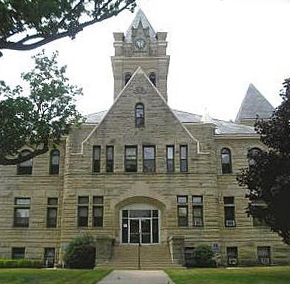
Pulaski County is getting some more financial help, but not without some opposition from county council members. During Monday’s joint council and commissioners meeting, officials considered hiring Darren Bates with Data Pit Stop at a cost of $10,000 per year.
The hope was that the company could help the county restructure its tax system. Council Member Mike Tiede said that in order to get people to move into the county, income taxes will have to go down. “All I know is, you guys, people are moving out of this county,” he said. “I was at Dollar General the other day, and a guy comes in there and he’s talking about a house for sale. And I sit there and I listen to him in the line. And he goes, ‘Hey, I’d be interested in that.’ Of course, you know, I’ve probably bought a few houses in the last few days or few months or few years. So I’m listening to him. And he says where the house is at, and the guy says, ‘Blank that! That’s in Pulaski County. Their taxes are too high!'”
Tiede stressed that it isn’t fair that working-class residents are subsidizing the taxes of large-scale property owners. “But if we just jerk all of that in one day, let’s do it,” he said. “Let’s just jerk it. See what happens.”
An ordinance that aimed to start restructuring the county’s taxes was narrowly voted down by the council back in October, with Tiede casting one of the opposing votes. The proposal came out of the county’s lengthy and expensive fiscal planning process, but Bates presented some other options that would achieve similar results. During Monday’s joint meeting, council members seemed to have very different understandings of what was in that ordinance.
“Maybe we ought to hire somebody that could tell us the situation,” Tiede said.
“We did! We did!” replied council members Kathi Thompson and Ken Boswell.
“But wasn’t the end of his conversation to raise taxes?” asked Council Member Rudy DeSabatine. “That was his answer to what to do was raise taxes.”
Thompson responded, “He was going to level taxes”
“Actually, he proposed lowering income taxes,” Council Member Brian Young added.
“Well, that’s not what I gathered from it,” DeSabatine said.
Community Development Commission Executive Director Nathan Origer pointed out that Bates’ suggestions would have had a similar impact on the tax structure, even though he proposed a different way of doing it. Origer also felt that it would be better to wait until the county is further along in the bond process for the courthouse renovation, since much of the same information may be gathered and the council can’t make immediate changes to the tax structure now, anyway.
Thompson was concerned that the county would be paying $10,000 for Data Pit Stop to essentially show county officials their own data. “What half staff person is going to go away if we spend $10,000 tonight, when we know we don’t have any extra leeway?” Thompson asked.
But in the end, Auditor Laura Wheeler said that Data Pit Stop’s software would provide a number of benefits to her office, beyond the tax restructuring recommendations sought by some council members. “One of them is $61 million worth of assets,” Wheeler explained. “I need to manage those $61 million worth of assets, and right now, I’m doing it on spreadsheets. Multiple spreadsheets. I would really like to have software that can help me manage those, and I think that all of you would like that, too.”
Wheeler said she had enough money budgeted in plat book fee revenues to cover the cost for the year. The commissioners agreed to let Wheeler proceed with using Data Pit Stop. No action was needed from the council, since the funding was already in place.

















